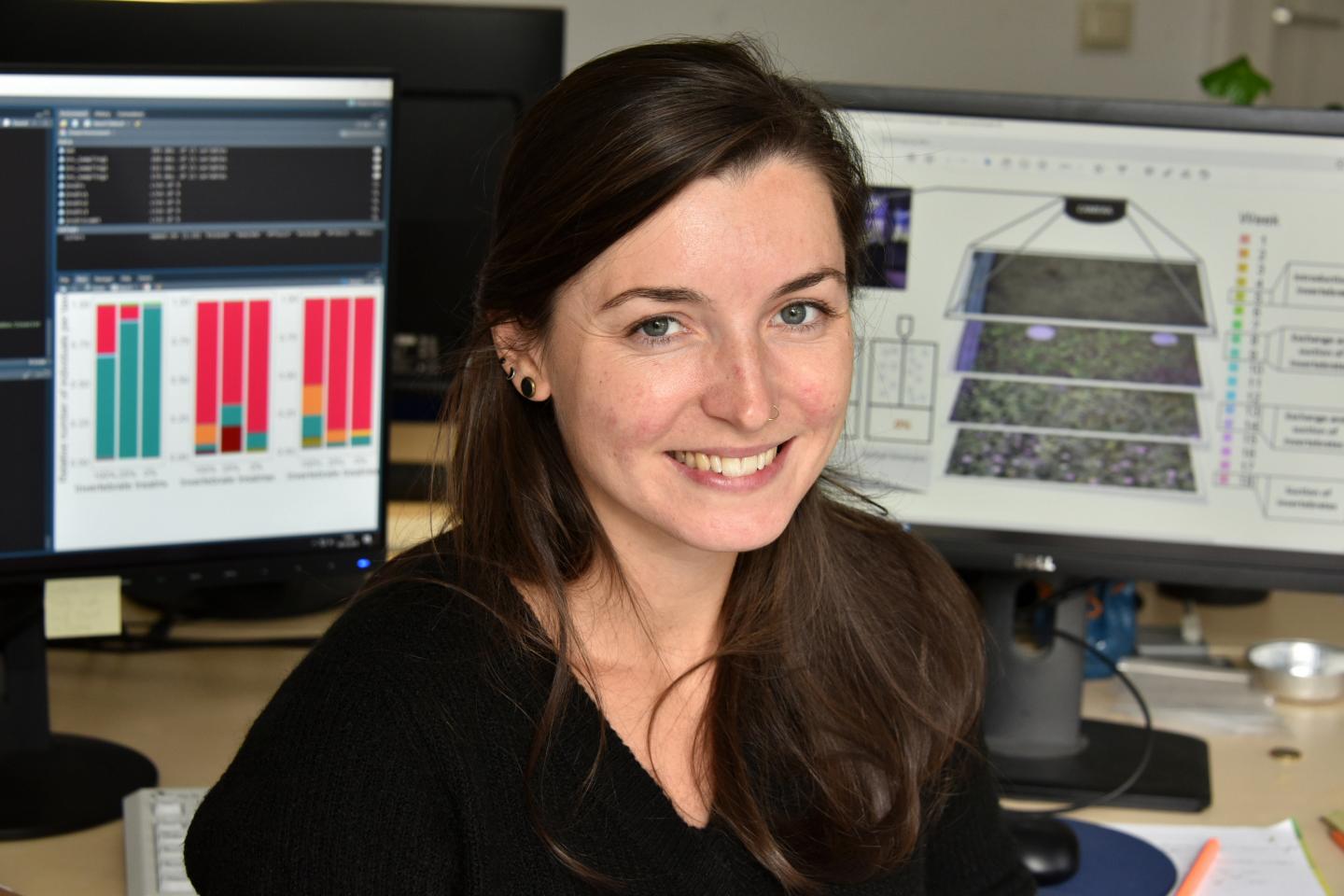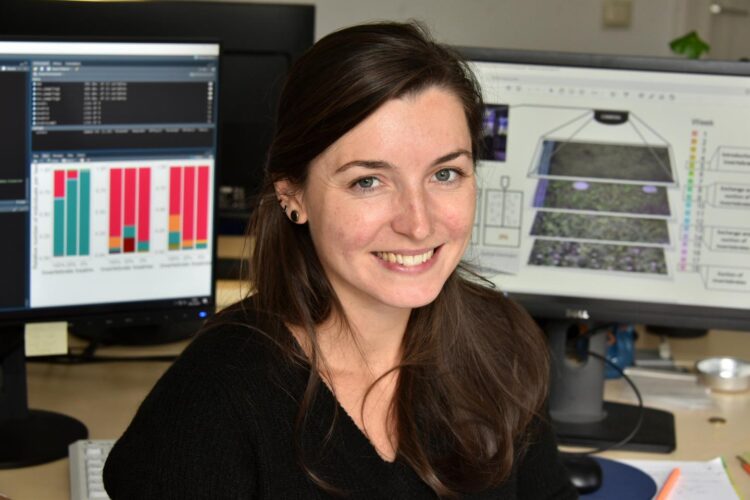Research group of Jena University and iDiv uses novel research method to study effect of insect decline on plant biodiversity

Credit: (Image: Anne Günther/University of Jena)
(Jena, Germany) It still sounds unlikely today, but declines in insect numbers could well make it a frequent occurrence in the future: fields full of flowers, but not a bee in sight.
A research group of the University of Jena (Germany) and the German Centre for Integrative Biodiversity Research Halle-Jena-Leipzig (iDiv) has discovered that insects have a decisive influence on the biodiversity and flowering phases of plants. If there is a lack of insects where the plants are growing, their flowering behaviour changes. This can result in the lifecycles of the insects and the flowering periods of the plants no longer coinciding. If the insects seek nectar at the wrong time, some plants will no longer be pollinated.
Innovative research method in iDiv Ecotron
Ecosystems are changing around the world, in particular due to global warming and altered land use. Insect species are dying out and the insect biomass is decreasing. Researchers have therefore studied how the biodiversity of plants is changing in the context of climate change. For this purpose, various climate scenarios have been simulated, using different temperatures and precipitation.
In a new study reported in the specialist journal Frontiers in Plant Science, the Working Group Biodiversity of Plants of the University of Jena, led by Prof. Christine Römermann, presents a different research approach. In cooperation with scientists from iDiv, led by Prof. Nico Eisenhauer, the researchers are focusing on the influence of invertebrates, such as insects, on the biodiversity and flowering behaviour of plants.
“We know that the insect biomass is decreasing,” says Josephine Ulrich, a doctoral candidate from Römermann’s team, referring to a study from 2017 which detected that insects had declined by 75 per cent over the previous 30 years.
The Jena research group has now studied in detail for the first time the extent to which decreasing insect density influences plant development. Whereas previous studies had only carried out field experiments, the research team used the “Ecotron”, an iDiv research facility where identical climatic situations can be simulated in artificial ecosystems and observed with cameras.
In their experiment, the researchers studied how plant composition and plant development change if the number of insects falls by three-quarters.
Mismatch between plant and animal worlds
Ulrich and her colleagues discovered that the reduced insect biomass brings about a change in plant species. It is especially the dominant plant species, such as red clover, which become more prevalent. The development of the flowering period also changes as insect density declines. Some of the plants studied flowered earlier and others later.
“These changes can lead to mismatches between plant and animal species, which lead to adverse consequences for the ecosystem,” says Ulrich, the lead author of the study. Examples are the food supply of insects and pollination success. This deterioration in the ecosystem function could entail further losses of insect and plant species. An additional consequence could be that plants become increasingly infested with pests. Due to the falling numbers of insects that feed on aphids, for example, these pests could spread unchecked.
###
Media Contact
Josephine Ulrich
[email protected]
Original Source
https:/
Related Journal Article
http://dx.





